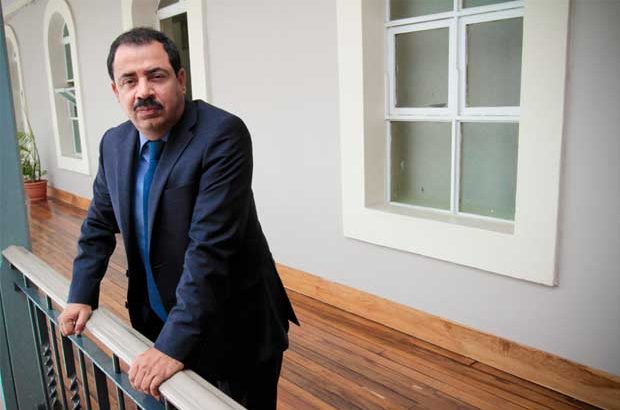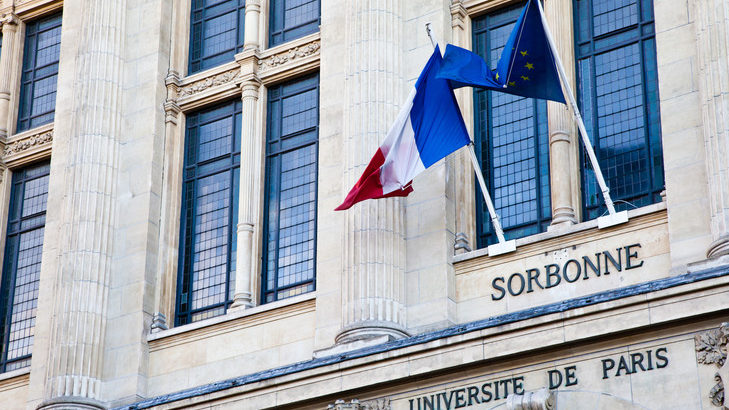América del Norte/Canadá/21 de Agosto de 2016/Autor: Charlie Smith/Fuente: The Georgia Straight
RESUMEN: La Universidad UBC Facultad de Educación en Canadá ocupa por primera vez el noveno lugar en el mundo y el cuarto en América del Norte. Frank Blye, Decano, estaba en un buen estado de ánimo cuando fue contactado. A principios de este verano, los QS World Ranking, preparados por Symonds Quacquarelli, ocupó el primer lugar entre 62 escuelas y facultades de educación de la Universidad de Canadá. «Tenemos estudiantes sobresalientes», dijo Frank.»El programa ha sufrido cambios significativos, lo que ha ayudado a sacar a su rango internacional del 30 al noveno lugar durante los últimos cinco años. Aunque la facultad de educación de la UBC continúa la formación de profesores con licencia de la provincia, hay un énfasis mucho mayor en los educadores que trabajan fuera del jardín de infancia hasta el grado 12 del sistema.«Se puede imaginar que los museos son lugares de aprendizaje muy importantes», dijo Frank. «La ciencia del mundo es un sitio de aprendizaje muy importante. El acuario es un sitio de aprendizaje muy importante «. Todos los candidatos a profesores de la facultad de la UBC de la educación hacen una práctica dentro de la escuela, que es un requisito para ser un maestro con licencia. Ellos hacen una segunda práctica en un sitio de aprendizaje que no sea una escuela. Esto podría implicar una temporada en otro país.«Creemos que esta es una característica interesante de nuestro programa», dijo Frank.Los avances en la neurociencia están teniendo un profundo impacto en la educación como se entiende más acerca de cómo las personas aprenden. De acuerdo con Frank, que también están teniendo un impacto significativo en los métodos de evaluación, que también deben tener en cuenta diferentes orígenes culturales, incluidas las de las comunidades indígenas.Dijo que al igual que los profesionales médicos han descubierto que los determinantes sociales pueden afectar a la salud de las personas, expertos en educación están reconociendo las ventajas de un enfoque interdisciplinario para el aprendizaje.
UBC’s dean of education, Blye Frank, was in a good mood when contacted recently by the Straight. Earlier this summer, the QS World University Rankings—prepared by Quacquarelli Symonds—listed UBC first among Canada’s 62 schools and faculties of education. His faculty of education ranked ninth in the world and fourth in North America.
“We have outstanding students,” Frank said. “That’s why we do so well.”
The program has undergone significant changes, which has helped lift its international rank from 30th to ninth during the past five years. Although UBC’s education faculty continues training teachers licensed by the province, there’s a much greater emphasis on instructing educators who work outside the kindergarten to Grade 12 system.
“You can imagine museums are pretty important learning sites,” Frank said. “Science World is a pretty important learning site. The aquarium is a pretty important learning site.”
He recalled holding an event at the Vancouver Art Gallery to discover who would be willing to offer placements to UBC faculty of education students. He expected eight to 10 organizations to send representatives.
“Eighty-eight showed up saying, ‘We would love to take your students,’ “ Frank said.
All teacher candidates in the UBC faculty of education do an in-school practicum, which is a requirement to be a licensed teacher. They do a second practicum at a learning site other than a school. This could involve a stint in another country.
“We think this is an exciting feature of our program,” Frank said.
Advancements in neuroscience are having a profound impact on education as more is understood about how people learn. According to Frank, they’re also having a significant impact on methods of assessment, which must also take into account different cultural backgrounds, including those of indigenous communities.
He said that just as medical professionals have discovered that social determinants can affect people’s health, educational experts are recognizing the benefits of an interdisciplinary approach to learning.
«Faculty would work with people in health, with people in medicine,» Frank said. «I have one of the leading international scholars here in autism.»
There are 400 doctoral students and another 1,400 master’s students enrolled in 23 different programs, including a fully online master’s of education in technology. The faculty of education also offers master’s and PhD programs in counselling psychology, which are required for those wishing to become registered psychologists in B.C.
Frank expressed pride in his faculty’s indigenous teacher education program, which has sites in Bella Bella and Lillooet and will soon open another one in Williams Lake. At spring convocation, there were seven aboriginal doctoral students.
In addition, he pointed out that UBC is the only Canadian postsecondary institution accredited for educating international baccalaureate (IB) teachers.
“Students here who do the IB concentration graduate with the B.Ed, but they also graduate with a certificate which allows them to teach in any IB program or school in the globe,” Frank said. “UBC itself has more applications from students coming from IB schools than any other university in North America.”
Fuente: http://www.straight.com/news/757901/university-rating-company-ranks-ubc-faculty-education-first-canada-and-ninth-world












 Users Today : 4
Users Today : 4 Total Users : 35460135
Total Users : 35460135 Views Today : 6
Views Today : 6 Total views : 3418789
Total views : 3418789